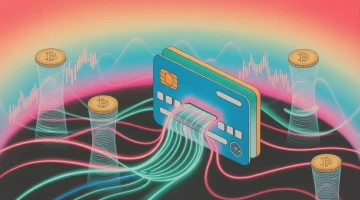Cryptocurrency vs. Token Development: Unveiling Differences

Table of contents:
Amid the ongoing evolution of digital finance, delving into the development of cryptocurrencies and tokens reveals the intricate processes that shape our digital economy. This article offers an insightful exploration of how these digital assets come into existence, highlighting the fundamental differences that distinguish them within the blockchain landscape.
Key Differences Between Cryptocurrency and Token
Cryptocurrencies and tokens are two distinct pillars of the digital financial ecosystem, each with unique characteristics that set them apart. The primary difference lies in their purpose and structure.

Cryptocurrencies like Bitcoin and Ethereum operate as independent digital currencies or platforms with their dedicated blockchains and consensus mechanisms. They serve as a store of value, medium of exchange, or foundation for various applications.
Tokens, on the other hand, are created within existing blockchain platforms, such as Ethereum or Binance Smart Chain, to serve diverse purposes. Tokens can represent assets, provide access to services, offer voting rights, or even be traded across different blockchain networks, contributing to a versatile digital economy. Understanding these distinctions is crucial for navigating the digital frontier and making informed choices in the ever-evolving world of digital assets.
Cryptocurrency Unveiled
Cryptocurrency, a term that has reverberated through the financial world in recent years, represents a revolutionary shift in how we perceive and utilize money. Let’s explore the essence of cryptocurrencies, their emergence, and the fascinating evolution they have undergone over time.

What is a Cryptocurrency?
At its core, cryptocurrency is a form of digital or virtual currency that relies on cryptographic techniques for security and operates on a decentralized network. Unlike traditional currencies issued by governments and central banks, cryptocurrencies are not controlled by any central authority. They leverage a distributed ledger technology known as the blockchain to record and validate transactions across a network of computers. The blockchain ensures transparency, security, and trust within the cryptocurrency ecosystem.
The Birth of Cryptocurrency
Cryptocurrency's origin can be traced back to a mysterious figure or group using the pseudonym Satoshi Nakamoto. In 2009, Nakamoto introduced the world to the first cryptocurrency: Bitcoin (BTC). This groundbreaking invention set the stage for a new era in finance, one that would transform our understanding of money.
Bitcoin's primary objective was to provide an alternative to traditional fiat currencies, offering a decentralized and digital means of conducting transactions. It wasn't long before Bitcoin garnered significant attention and a growing community of users and enthusiasts.
Understanding Cryptocurrencies
Cryptocurrencies are digital currencies that employ cryptographic techniques to ensure security and decentralization.

Here's an exploration of their fundamental characteristics:
- Stand-Alone Currencies: Cryptocurrencies such as Bitcoin, Ethereum, and Litecoin are autonomous digital currencies. They operate on their dedicated blockchain networks and hold intrinsic value, functioning as a medium of exchange, a store of value, or even both.
- Native Blockchains: Cryptocurrencies boast their proprietary blockchain networks. For instance, BTC has the Bitcoin blockchain, and ETH runs on the Ethereum blockchain.
- Decentralized: Cryptocurrencies are typically decentralized, signifying their independence from central authorities, governments, or entities. Instead, they rely on a distributed network of nodes to validate and document transactions.
- Security and Consensus: To uphold security and validate transactions, cryptocurrencies leverage cryptographic techniques and consensus mechanisms such as Proof of Work (PoW) or Proof of Stake (PoS).
- Broad Use Cases: Cryptocurrencies serve a multitude of purposes, encompassing digital payments, investment opportunities, and functioning as a digital medium of exchange.
The Evolution of Cryptocurrency
Over time, the cryptocurrency landscape evolved in remarkable ways, and a multitude of cryptocurrencies emerged.

Some pivotal aspects of this development include:
- Diverse Use Cases: Cryptocurrencies evolved from being just digital cash alternatives to serving a multitude of functions. They became stores of value, mediums of exchange, and integral components of emerging decentralized finance systems.
- Innovation in Technology: New cryptocurrencies introduced innovative technologies, such as smart contracts, which enable self-executing agreements and decentralized applications. Ethereum, with its native cryptocurrency Ether (ETH), played a pivotal role in advancing this technology.
- Blockchain Forks: Bitcoin, the pioneer, saw forks that resulted in the creation of alternative cryptocurrencies. Bitcoin Cash (BCH) is an example of such fork, aiming to address specific challenges.
- Privacy Coins: Cryptocurrencies like Monero (XMR) and Zcash (ZEC) enhanced privacy features to provide users with increased anonymity in their transactions.
- Regulatory Challenges: Cryptocurrencies faced regulatory scrutiny in various parts of the world, with governments and authorities striving to establish a regulatory framework to govern their use.
- Tokenization and Asset Management: Cryptocurrencies paved the way for the tokenization of various assets, including real estate, art, and collectibles. This innovation has created new opportunities for ownership and investment.
Summing up Cryptocurrencies
Cryptocurrency has come a long way from its inception as a digital alternative to traditional money. Its journey has been marked by technological advancements, diverse use cases, and a growing global acceptance. Today, cryptocurrencies have become a significant part of the financial ecosystem, with the potential to reshape how we conduct transactions and manage assets.
As cryptocurrencies continue to evolve and garner broader adoption, individuals and institutions must stay informed and engaged in this ongoing financial revolution. Whether you're an enthusiast, investor, or someone simply intrigued by this digital phenomenon, the journey of cryptocurrency is one worth exploring and understanding.
Demystifying Tokens
Tokens, a term often mentioned in the cryptocurrency space, represent a dynamic and versatile category of digital assets. Let’s ddelve into the realm of tokens, deciphering what they are, their origins, and how they've evolved to become a critical component of the digital financial landscape.

What are Tokens?
Tokens, in the context of cryptocurrencies, are digital assets built on existing blockchain platforms. Unlike cryptocurrencies like Bitcoin, tokens do not have their standalone blockchain but instead rely on the infrastructure of other blockchains to function. These tokens have a wide range of use cases, and they serve as representations of various assets, utilities, or rights within specific ecosystems.
The Birth of Tokens
Tokens gained prominence as the cryptocurrency space matured and diversified. They are a testament to the adaptability and innovation within the digital asset sphere. Tokens are not a new concept, but they've been revitalized and empowered by blockchain technology.

Tokens have evolved into a multifaceted category of digital assets. Let's explore their transformation and some key highlights:
- Initial Coin Offerings development: The ICO boom of 2017 marked a turning point for tokens. Start-ups and projects leveraged blockchain technology to create tokens and distribute their tokens to raise funds. These tokens represented a stake in the project or access to a product or service.
- Security Tokens: Some tokens represent traditional financial securities tokenizing stocks or bonds, creating a bridge between traditional finance and the digital world. Security tokens are subject to regulations that vary by jurisdiction.
- Utility Tokens: Utility tokens grant access to specific functionalities or services within a blockchain platform or ecosystem. They are essential for interacting with decentralized applications (DApps) and other blockchain services.
- Non-Fungible Tokens (NFTs): NFTs have gained immense popularity, representing unique digital assets such as collectibles, digital art, virtual real estate, and more. They are indivisible and possess individual value.
- Governance Tokens: These tokens grant holders the power to participate in decision-making within decentralized organizations or platforms. Holders can propose and vote on changes and updates.
- Stablecoins: Stablecoins are tokens designed to maintain a stable value, often pegged to a fiat currency like the US dollar. They provide stability and are frequently used as a medium of exchange and a store of value in the crypto world.
- DeFi Tokens: Decentralized Finance tokens have ushered in a revolution in the financial sector. These tokens enable a wide range of financial services, such as lending, borrowing, trading, and yield farming, all without intermediaries. Notable DeFi tokens include Aave (AAVE), Compound (COMP), and Uniswap (UNI).
- AI Tokens: AI tokens are crypto assets that either fuel AI projects or represent data used by AI algorithms for learning and processing.
Summing Up Tokens
The world of tokens is ever-expanding, with each token serving a unique purpose within its respective ecosystem. As the blockchain space continues to grow and diversify, the utility and applications of tokens are likely to expand even further.
Whether you're an investor looking for new opportunities, a developer exploring the potential of blockchain technology, or simply someone fascinated by the digital frontier, tokens are a captivating and integral part of the cryptocurrency ecosystem. They have redefined how we think about ownership, access, and participation in a blockchain-driven world. The token story keeps evolving, promising an exciting journey into the future of digital finance.
Cryptocurrency and Token Development Process Difference
Cryptocurrency and token development represent the bedrock of the digital financial revolution. Let’s venture behind the scenes to explore the development processes of both, unraveling the intricate journey of bringing these digital assets to life. We'll also uncover the key distinctions that set cryptocurrency and token development apart.

The development processes of cryptocurrencies and tokens share some common elements, such as blockchain technology and cryptographic security. However, the key distinction lies in their purpose and structure:
- Cryptocurrencies aim to function as independent digital currencies or platforms, requiring the creation of an entirely new blockchain network with its consensus mechanism.
- Tokens are created within existing blockchain ecosystems, designed to serve diverse purposes, from representing assets to granting access to services and facilitating decentralized governance.
Cryptocurrency Development Process
Cryptocurrency development services form the backbone of the digital economy.

The creation of a cryptocurrency involves several fundamental steps:
- Conceptualization: It all begins with an idea. Developers envision the purpose, function, and unique features of the cryptocurrency they intend to create. This initial step involves determining whether the cryptocurrency will serve as digital cash, a store of value, a platform for smart contracts, or something entirely different.
- Consensus Mechanism: Developers must choose a consensus mechanism that will validate and secure transactions on the cryptocurrency's network. Popular mechanisms include Proof of Work (PoW) and Proof of Stake (PoS).
- Blockchain Development: The cryptocurrency needs a blockchain to operate. Developers design and build the blockchain, which serves as the distributed ledger to record all transactions. The blockchain design must incorporate features like immutability, transparency, and security.
- Cryptographic Security: Cryptocurrencies rely on cryptography to ensure transaction security. Developers implement cryptographic techniques to protect the privacy and integrity of the network.
- Network Launch: Once the blockchain and consensus mechanism are in place, the cryptocurrency is launched. Miners or validators join the network, transactions commence, and the cryptocurrency becomes functional.
- Ongoing Maintenance: Cryptocurrency development doesn't end at launch. It requires ongoing maintenance, updates, and security enhancements to adapt to evolving technology and user needs.
Token Development Process
Tokens, on the other hand, are the adaptable tools that power various aspects of the digital world, including decentralized applications (DApps), fundraising, and asset representation.

Token development follows a slightly different path:
- Blockchain Platform Selection: Token development begins with choosing an existing blockchain platform, often Ethereum, Binance Smart Chain, or others, to host the tokens. These platforms provide a foundation for creating and managing tokens.
- Smart Contracts: Developers create token smart contracts within the chosen blockchain to define the token's functionality, including its supply, transfer rules, and additional features such as governance or staking.
- Token Standards: Tokens are often created based on established token standards. For example, Ethereum's ERC-20 standard is widely used for fungible tokens, while ERC-721 is used for non-fungible tokens (NFTs).
- Deployment and Distribution: Once the smart contract is finalized, developers deploy the tokens on the chosen blockchain. Tokens can be distributed through various methods, including initial coin offerings (ICOs), airdrops, or direct purchases.
- Use Cases: Tokens can represent various assets or utilities, depending on their use case. They can represent digital art, real estate, access to specific services, voting rights, and more.
- Interoperability: Some tokens can be swapped or exchanged across different blockchain networks, increasing their utility and reach.
While cryptocurrency and tokens share some similarities in technology, their goals and structures differ significantly, providing a wide array of options for innovators and users in the ever-expanding world of digital assets. Whether you're launching a cryptocurrency or a token, understanding their development processes is crucial for navigating the digital frontier.
Conclusion
In conclusion, the worlds of cryptocurrency and token development are vibrant and ever-expanding. While they both rely on blockchain technology and cryptographic security, their purposes and structures set them apart. Cryptocurrencies are the pioneers, serving as digital currencies and platforms with their dedicated blockchains. Tokens, on the other hand, find versatility within existing blockchain ecosystems, representing various assets, utilities, and governance mechanisms.
The distinctive paths they follow in their development processes reflect the multifaceted nature of the digital financial landscape. Whether you're drawn to the creation of a groundbreaking cryptocurrency or a versatile token, understanding these differences is paramount. It's a testament to the limitless potential and ongoing innovation in the digital realm, where opportunities abound for those willing to explore and navigate the ever-expanding world of digital assets. As technology evolves, so too will the roles of cryptocurrencies and tokens, shaping the financial future in ways we've yet to imagine.
We ❤️ Development
Follow us on social media to receive the hottest blockchain development updates
Twitter ⚡️ Telegram ⚡️ LinkedIn












%201.webp)



